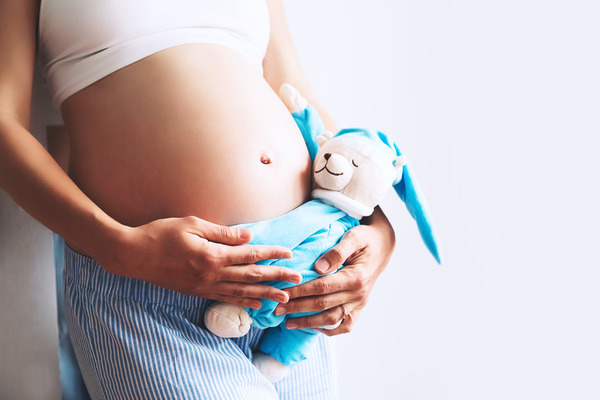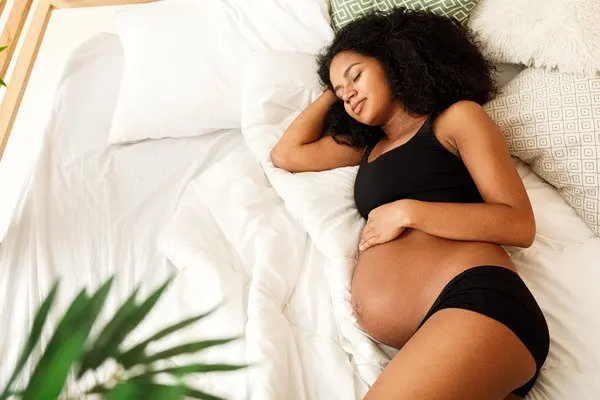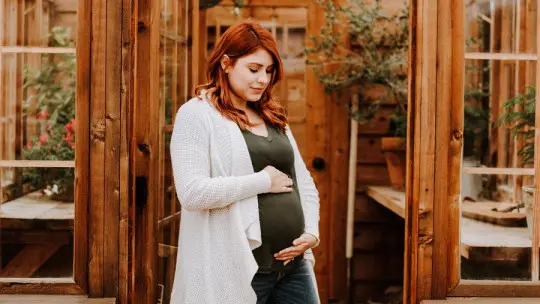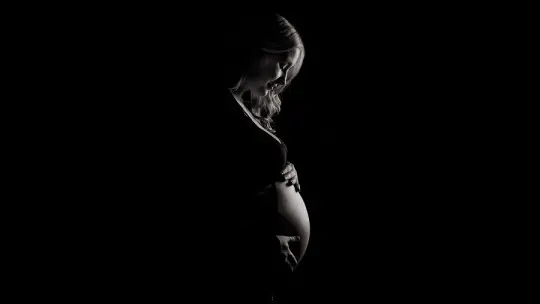What to take into account if we have suffered from anorexia and want to get pregnant? How do eating disorders affect pregnancy? Find out how to cope.
During pregnancy, women may feel insecure because of all the changes they will experience in their body. Although weight gain means you are feeding the baby, some women may try to avoid it as they are not comfortable with it. So what to do if you suffer from anorexia during pregnancy ? How to face pregnancy after suffering from anorexia?
What is pregorexia? Anorexia in pregnancy
Pregorexia is a term that describes women who reduce calories and exercise during pregnancy to control weight gain. The word pregorexia refers to two terms: anorexia and pregnancy Although it is not an official medical concept, this word is used to target pregnant women who feel a fear of gaining weight during pregnancy. Although it is not a medical condition, there are cases in which women can suffer from an eating disorder during pregnancy.
According to experts, women who have suffered from eating disorders in the past are more likely to suffer from anorexia during pregnancy or pregorexia Despite this, having suffered an eating disorder in the past is no guarantee of suffering from pregorexia or anorexia during pregnancy.
Symptoms of suffering from anorexia during pregnancy (or other eating disorders)
Some of the most common symptoms and warning signs that may indicate that you are suffering from anorexia in pregnancy or another eating disorder, are the following:
- Excessive exercise
- Lack of motivation to modify your exercise routine
- Restrict food intake
- Compulsively counting calories
- binge eating
- Purging (self-induced vomiting or the use of laxatives)
- Feeling shame and guilt due to weight gain
- Eat alone and avoid eating in front of others
- Weigh yourself several times a day
- Express fear about body weight
- Chronic fatigue
- Dizziness and fainting
These are some of the symptoms that may indicate that we are facing a case of a pregnant anorexic or a woman who suffers from an eating disorder during pregnancy In these cases it is vital to go to a doctor’s office as soon as possible and get the help of a professional psychologist.

Causes of eating disorders during pregnancy
Although there is no clear cause for the eating disorders during pregnancy Normally, women who suffer from it are due to the following reasons:
- Having previously suffered from an eating disorder: Women who have suffered from an eating disorder such as anorexia or bulimia are more likely to suffer from these disorders again during pregnancy.
- Social pressure: As our bodies begin to change during pregnancy, many women may feel pressure to gain the minimum amount of weight in order to stay ‘healthy’ after pregnancy.
The consequences of anorexia and eating disorders during pregnancy
Eating disorders can negatively affect our body and the development of the baby. In this way, for example, the women who suffer from anorexia during pregnancy They have higher rates of spontaneous abortion, prematurity, slower fetal growth, and low birth weight babies. On the other hand, women who suffer from binge eating disorder also have higher rates of miscarriage and a higher risk of having babies with higher birth weights.
How to treat an eating disorder during pregnancy?
Many women with eating disorders are afraid to reveal their condition to the people they trust most. Still, you should know that not doing so can put both you and your baby in danger. Although you may feel embarrassed by these symptoms, it is very important to go to your family doctor as soon as possible and report these signs.
Currently, there are no specific treatments to address the eating disorders during pregnancy Even so, the most recommended treatment is to go to a professional psychologist and a nutritionist (in order to recover a healthy diet).
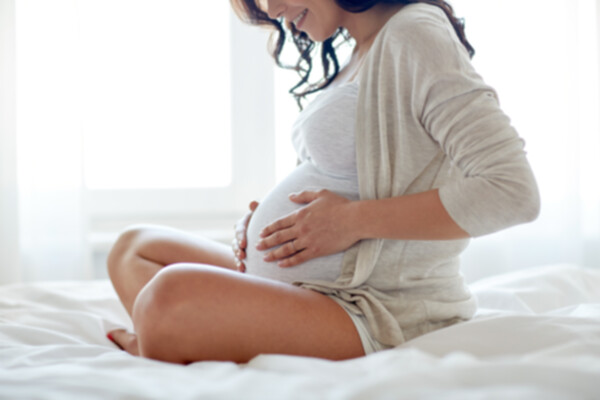
How to face pregnancy after having suffered from anorexia?
One of the most common concerns of anorexic women or those who have suffered from anorexia is the impact that this disorder can have on fertility and future pregnancy, both on the baby and on one’s own health.
Normally, the desire to have children can be a great motivator to try to recover and stay well. Still, having a baby after suffering from anorexia is not easy. In this way, there are different critical points that we must take into account if we have suffered from anorexia and we have a pregnancy :
- Before pregnancy : Contrary to popular belief, the reality is that the damage to the female reproductive system that anorexia can cause is completely reversible. Therefore, with proper weight restoration and consistent adequate nutrition, menstruation and ovulation can resume despite the amenorrhea caused by anorexia.
- Don’t try to get pregnant if you haven’t regained your weight: If you are still suffering from low body weight, it is important that you focus on regaining your weight.
- Pregnancy can trigger a relapse: One of the relevant points to highlight is that pregnancy can mean a relapse for a woman who has suffered from anorexia. Therefore, if you feel that you may have problems during pregnancy, it is crucial that you see a professional psychologist for treatment immediately.
- Comment your background: When you know that you are pregnant, it is vital that you inform your family doctor of your history. In this way, they can help you if they begin to suspect that there are signs that you have an eating disorder.
- Watch for nausea and loss of appetite: During pregnancy it is completely normal to experience nausea and vomiting, which can lead to a loss of appetite during pregnancy. These types of pregnancy symptoms can put you at greater risk of relapse. Therefore, it is essential that you prioritize eating as soon as you can physically tolerate it.
- Try to relax: Obviously, during pregnancy you will gain weight, which can be a major concern for a person with a history of anorexia. Given this, it is important that you try to relax, put stress aside and even focus on your baby’s development.
- After birth: The postpartum period is a high-risk period for women who have suffered from anorexia. The reason is that during pregnancy women may experience a false sense of security that their anorexia has resolved, which may result in less alertness to the first symptoms.
- Don’t succumb to social pressure: Many mothers experience some social pressure to reclaim their bodies after pregnancy. Faced with these types of events, it is normal that women with a history of anorexia may feel even more pressured. Given these feelings, it is important that you open up to the people close to you and comment on the damage that these comments or pressure can do.
A woman who has suffered from anorexia or other eating disorders You can have a completely healthy pregnancy despite the chances of relapse due to the symptoms of these conditions. Even so, with the effort and love of the environment, it is possible to go through a pregnancy without suffering from these disorders.


